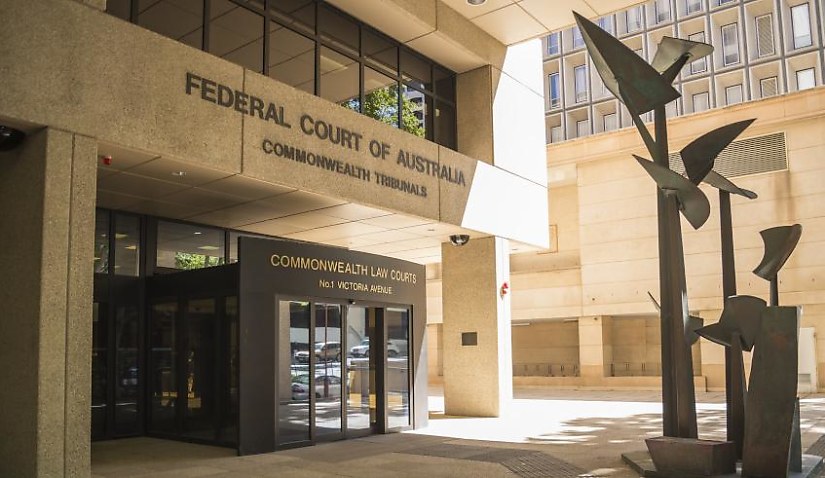Powered by MOMENTUM MEDIA
The Federal Court has handed down the largest-ever penalty against a company for breaching continuous disclosure laws.

Start-up company GetSwift Limited (GetSwift) was ordered to pay $15 million in a judgment handed down on Thursday (16 February).
The “early-stage technology company” began issuing shares from a price of 20¢ in 2016, and within a year, its share price rose to over $4, prior to an announced trading halt.
GetSwift raised a total of $104 million from investors.
The start-up generated operating losses in every year of its existence yet failed to update the market about losses of materially significant contracts.
The two main instigators and operators of the company were Bane Hunter, the company’s former director, chief executive and executive chairman, and Joel Macdonald, the former director.
Mr Hunter was described as the principal instigator of the wrongdoing of GetSwift, while Mr Macdonald was characterised as his lieutenant.
The court found that GetSwift made numerous misleading statements in its announcements on the ASX.
Mr Hunter took a proactive role in drafting ASX announcements, in order to “influence the market perceptions of the value of GetSwift’s shares”, established the judge presiding over the case, the Honourable Michael Lee.
“I found each of the announcements caused an increase in GetSwift’s share price … and each produced an increase in the volume of shares traded.
“The ASX announcements played a pivotal role in engendering the expectations of investors as to how GetSwift’s business was performing,” stated His Honour.
In 2018, following the commencement of an investigation by the Australian Securities and Investments Commission (ASIC), GetSwift transferred $80.5 million to an offshore bank account held by GetSwift Inc.
“These transactions were unexplained by any evidence,” noted Lee J.
After news broke to the public, the share price plummeted, and a class action was started. In 2022, GetSwift was placed into voluntary liquidation.
Mr Hunter and Mr Macdonald were found to have been aware of GetSwift’s continuous disclosure breaches.
“[The] contravening conduct [that] took place is significant,” Lee J said in his judgment. “It spanned an extended period with the longest contravention occurring over a period of approximately 22 months.”
“The contravening conduct had real-life consequences for the investing public.
“Critically, the contraventions were the result of a plan and constituted deliberate conduct by the company,” His Honour stated.
“In approving settlement of the class action on 2 February 2023, Murphy J observed that GetSwift’s ‘own misconduct has now brought it to its knees’ and that its actions represented a ‘scandalous episode of corporate misconduct’. One can only agree with his Honour’s observations.”
“Finally, there is no evidence of contrition or remorse by the two of the company’s senior officers primarily responsible,” stated His Honour. “Indeed, such evidence as there is points in the opposite direction.”
Neither Mr Hunter nor Mr Macdonald returned to Australia to defend their position and did not appear at the penalty hearing.
“The wrongdoing was insidious,” remarked Lee J. “Those primarily responsible for its wrongful conduct, could be described as representing the unacceptable face of start-up capitalism.”
Along with the order for GetSwift to pay a pecuniary penalty of $15 million in respect to contraventions of the Corporations Act, Lee J handed down several penalties to the key instigators.
Mr Hunter was ordered to pay $2 million and be disqualified from managing corporations for 15 years.
Mr Macdonald was ordered to pay $1 million, along with being disqualified from managing corporations for 12 years.
Brett Eagle, who was found to be “a significantly less important player”, held the position of general counsel for a time at GetSwift, yet displayed evidence that he was bullied by Mr Hunter.
Mr Eagle was ordered to pay $75,000 and disqualified from managing corporations for two years.
Mr Hunter and Mr Macdonald were ordered to pay 92.5 per cent of ASIC’s costs, and Mr Eagle was ordered to pay 7.5 per cent of costs.
ASIC deputy chair Sarah Court commented: “Disclosure is critical to market integrity and consumer protection.
“The penalties imposed by the court demonstrate the extent and seriousness of the misconduct in this matter and the importance placed by the court on deterring others from engaging in similar behaviour.
“ASIC will continue to take action to hold companies and individuals to account for corporate misconduct of this kind.”
We're evolving — and so should your insights. Heads up — Lawyers Weekly is going premium from 1 May for just $5 a month. Stay informed without missing a beat. More information coming soon.